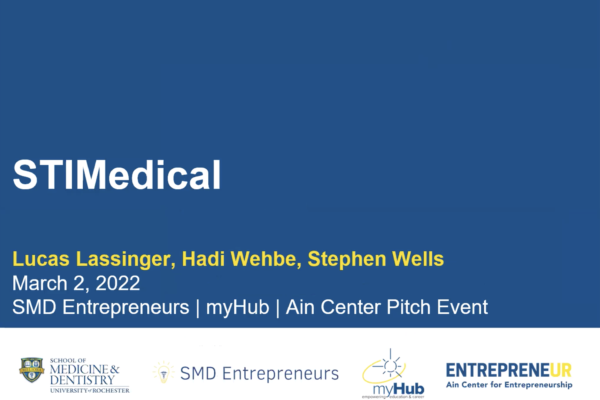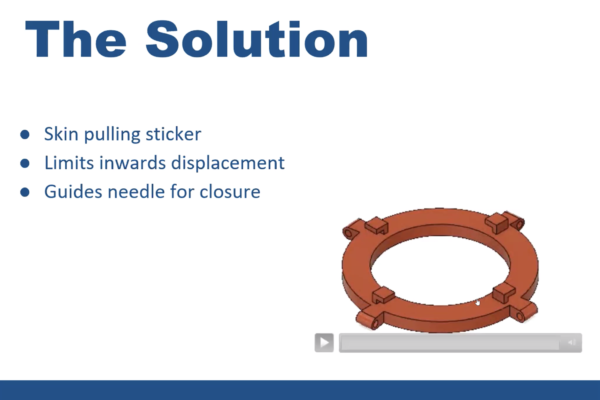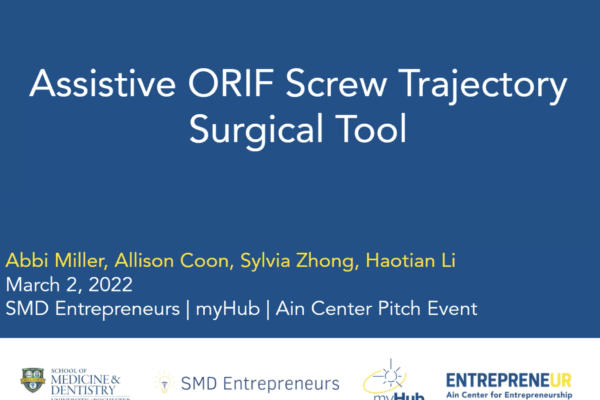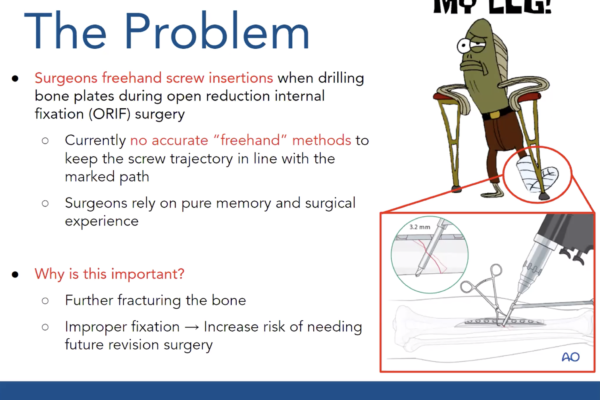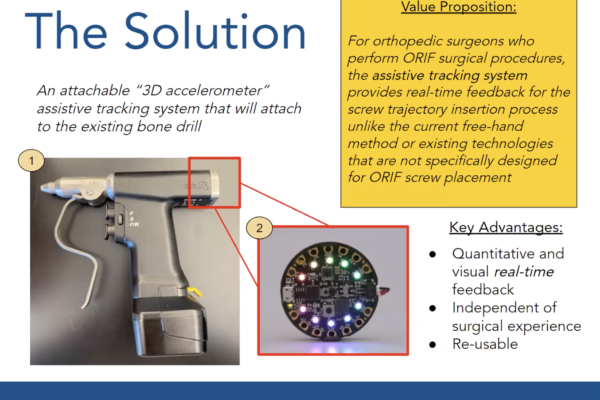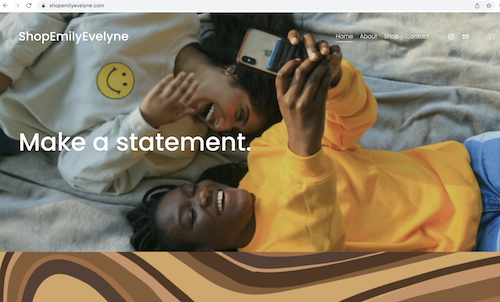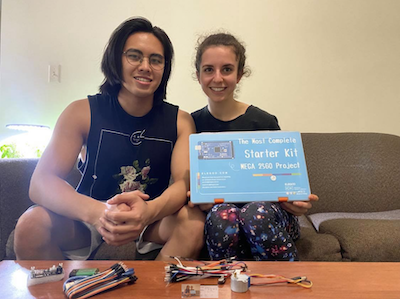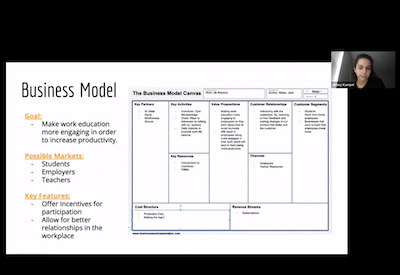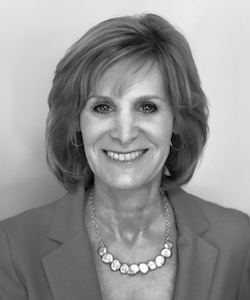The First Annual Big Ideas in Science and Medicine Pitch Competition
By Brandon Davis ’23 (PhD)
On Wednesday March 2nd, 2022, the Ain Center for Entrepreneurship, MyHub, Alumni Relations and the newly-formed student organization for entrepreneurial trainees at the School of Medicine and Dentistry, SMD Entrepreneurs, hosted the first annual SMD Big Ideas in Science and Medicine Pitch Competition.
As a 5th year biochemistry PhD Candidate, co-founder of RHM Innovations Inc., and founder and president of SMD Entrepreneurs, I designed this competition as a preview of the entrepreneurial opportunities SMD Entrepreneurs will bring to trainees at the School of Medicine and Dentistry, and I was thrilled to serve as the competition’s emcee. SMD Entrepreneurs aim to show that entrepreneurship is a career path that trainees should consider. Although we’re excited about business development, SMD Entrepreneurs has something for everyone, whether it’s learning about investing or making connections with distinguished scientists and industry leaders.
With the help of our Alumni Relations team, we were able to assemble a panel of distinguished alumni judges for the competition, including Dr. Paul Bleichard, executive partner at Ardan Equity; Dr. Jeff Goater, venture partner at The Column Group; Dr. Sullafa Kadura, assistant professor of clinical medicine at URMC; and Sharon Samjitsingh, co-founder of Healthcare Originals and the 2020 TechRochester’s Technology Woman of the Year. Nine teams competed, giving a three-minute pitch of their venture or idea, followed by Q&A with the judges. The judges critically evaluated each team, and selected first and second place winners.
The first-place prize of $500 was awarded to STIMedical. Team members Hadi Wehbe ’22 (MS), Lucas Lassinger ’22 (MS), and Stephen Well ‘22 (MS), all of biomedical engineering, proposed a medical device to improve laparoscopic surgery procedures.
Second place and $250 went to Abbi Miller ’22 (MS), Allison Coon ’22 (MS), Sylvia Zhong ’22 (MS) of biomedical engineering and Haotian Li ’22 (MS) of the Technical Entreprenuership and Management MS program for their proposal of a medical device to assist with the accurate insertion of surgical screws during open reduction internal fixation (ORIF) surgery.
This event would not have been possible without the help and support from many key collaborators: Eric Vaughn and Elaine Smolok of MyHub for their continued support and financial contribution to the competition; Kathy Driscoll, Heidi Mergenthaler, Meghan Plate, and Annette Durnack at the Ain Center for sharing their resources and enthusiasm of bringing entrepreneurship to URMC; and Stephanie Ripley, Kerri Mertz, and Michael Dermody from Alumni Relations for helping us connect with our judges through the UR alumni network. The collaboration of everyone involved allowed us to showcase some of the innovative research happening on our campus.
Congratulations to the winning teams! You can watch the full video of the competition on Vimeo.
Brandon Davis ’23 is a 5th year biochemistry PhD Candidate and the University of Rochester School of Medicine and Dentistry, co-founder of RHM Innovations Inc., and founder and president of student organization SMD Entrepreneurs.

